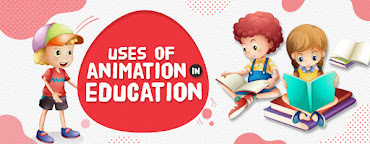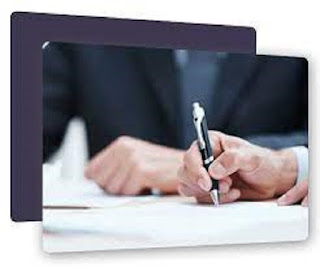HOW TO CREATE A LESSON PLAN THAT REACHES ALL TYPES OF LEARNERS?
A lesson plan is nothing but planning for learning. The main
intention of it is to provide quality planning resulting in a quality outcome.
The instructor devotes considerable time to making the lesson plan effective
and engaging that stresses one or more series of instructions. They can
channelize their gained knowledge and expertise to the group of learners who,
in turn, thirst their knowledge quench in the most effective ways. Therefore,
getting professional lesson plan development providers to justify the essence of
lesson planning.
What is a lesson plan?
A lesson plan is the outline of the content step-by-step.
It is generally composed in advance. Besides, it can cover
one-off activity, a gamut of courses, in a day or a week depending on the
requirements. It prints and converts into PDF format, and the instructor
follows that.
The lesson plan consists of:
Generally, a lesson plan includes a series of activities that
will deliver to the learners. Sometimes, a lesion plan adds extra to enhance
the concepts of the topics.
Lesson goals
Lesson activities
Lesson feedback
Lesson materials.
Assessment procedure
Keep space for reflection of lesson plan:
Anarea can maintain for the scheduled activity. It is a great
document to refer to in the future lesson plan. Keeping aside some space can
reflect the learners' thoughts and the area of difficulty, which can use for
future reference.
Break into meaningful deliverables:
While delivering a complex lesson, it is comfortable to handle
both instructor and learners by providing outlining expectations. A checklist
is a great way to make any lesson plan effective.
Illustration brings freshness to the lesson plan template:
Graphics and visual descriptions no doubt can inspire learners
greatly. It is an excellent resource to make things easy to understand.
Incorporates the basic tenets of effective instruction:
Maintaining the same standard of the learning process is quite
helpful for learners having different learners’ Qs. A lesson plan unfolds the
primary intention of the lesson, and it stuffs with real-life examples to make
the topics easily comprehensible. A question answering session will garner more
information about the subject.
Evolving content:
The content consists of knowledge, skills and concepts that
learners require to learn that is curriculum-based. Different contents mean a various
resources like video, explainer video, gamification, and others related to it.
Learners can pick up the ways they choose based on the requirements. If the
agency provides a variety of ways to explore the content result, learners are
in a position to find various ways to connect.
Transform process:
It is the process through which the learners can ascertain the
content. They require time to understand the subject before moving on to the
next part of the lesson. Consider the workshop, where the learners finish the
workshop, become satisfied with gaining substantial knowledge. In the same
vein, the process helps learners to judge what they understand and what
not.
Reach a gamut of learners:
The combined effect of process, content, and product are the key
in designing lessons. Fortunately, the lesson plan development providers have
all the requisite expertise to make the lesson plan engaging.
Make the lesson plan engaging and pertinent:
It is a difficult task for the instructor to compose a
curriculum and lesson plan. The lesson plan should engage and provide a clear
picture of the topics, supported by comprehensive, meaningful examples
separated chapter-wise.
Begin with a broad picture:
Connect with another relevant source to see how the lesson plan
fits the bigger picture, like the curriculum calendar. In each unit, how the
learners can accomplish, and with each lesson, outline the desired performance
of the learners.
Avoid making a mess:
Even after making the lesson plan, it needs to assess its
effectiveness concerning learners’ perspectives. If it inspires learners to
help think in a meaningful way and understand the concepts thoroughly; it is the perfect lesson plan.
Creativity:
If the lesson planning is not practical, it will not serve its
purpose. Creativity is the best way to engage the learners extensively. Many
websites cater various resources to the learners like video, audio, explainer
video, gamification used extensively to make the topics engaging and
interactive.
Diverse learners:
The learning capacity of the learners varies. The lesson planner
can take an active role to minimise the gap effectively. The instructor should
proceed with the core so that every learner can understand it quickly, and it
is easy for the instructors to move on to the next chapter.
Summary :
It does not mean that the lesson plan is comprehensive, but it
depicts the method of every interaction of the learners and provides a general
overview of the goals and purpose of the course. It is like a show of every day
and leverages the learning benefits that the learners get within a limited
time.
The essence of the lesson
plan is to generate motivation for learners in a most engaging way. Getting a
good lesson plan is a prudent idea of availing of lesson plan development providers.




Comments
Post a Comment